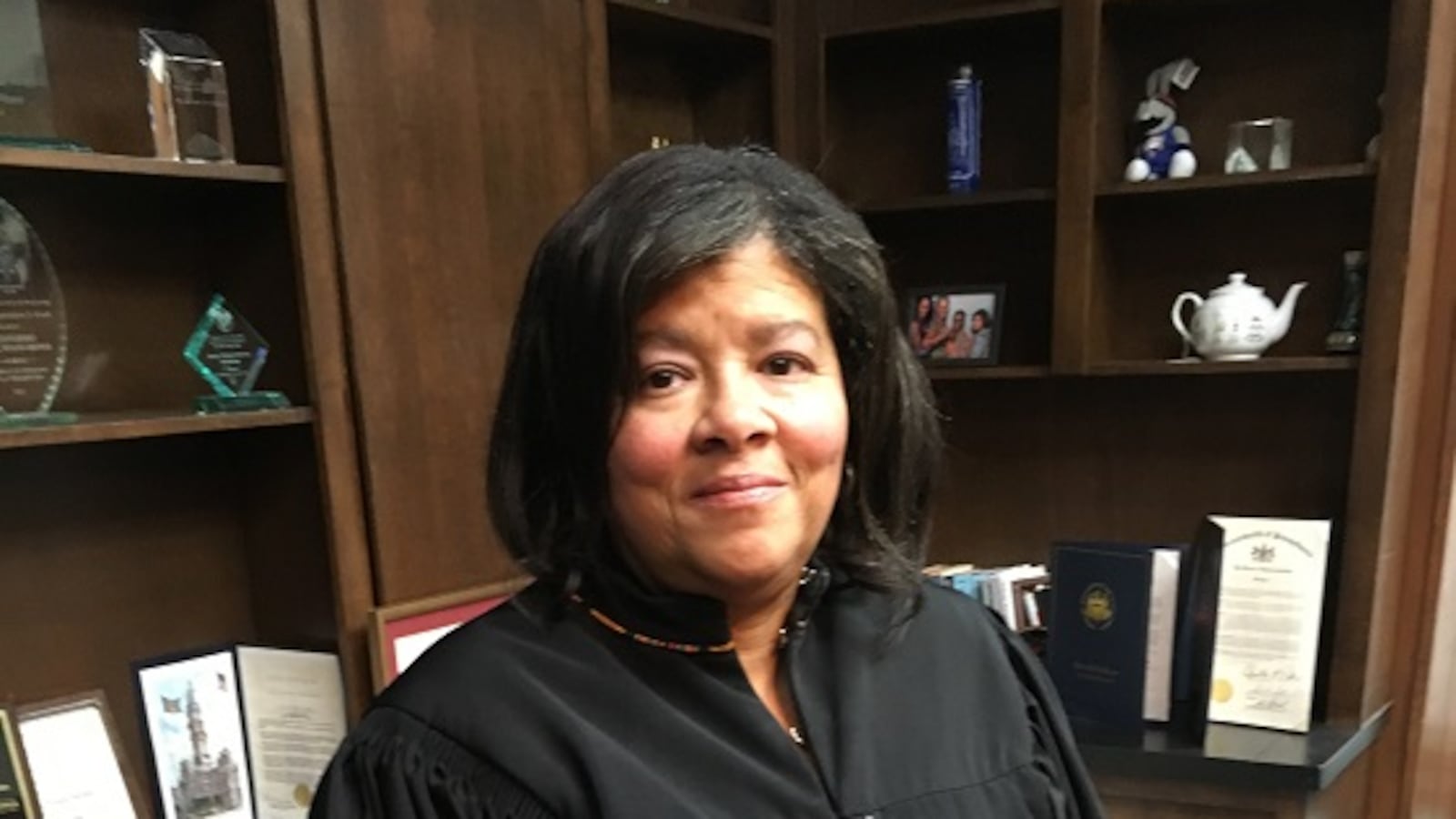This article was originally published in The Notebook. In August 2020, The Notebook became Chalkbeat Philadelphia.
Don’t always assume that the juvenile is the root cause of the problem.… Always consider the role of the family, school, and community. – From the Pennsylvania Juvenile Delinquency Benchbook, a guide for juvenile court judges
If one is looking for the most traumatized youths in Philadelphia, a good starting place might have been Judge Lori Dumas’ WRAP courtroom.
The program – Working to Restore Adolescents’ Power – is designed for juvenile victims of sex trafficking who have also been charged with crimes.
Dumas , who ran the program until about a year ago, sat with each defendant for face-to-face meetings to build trust. An interdisciplinary team that also includes a prosecutor, defense counsel, and treatment providers seeks to avert criminal proceedings in all but the most serious cases.
The program helped Dumas win the first Innovator of the Year Award from the National Council of Juvenile and Family Court Judges.
But outside the WRAP courtroom, she has a larger goal: Making Philadelphia’s judges more sensitive to the role of trauma as a key element in youth crime and delinquency.
At times, it can seem like an uphill battle.
“The leadership is not very responsive to outside opinions,” she says. “That’s the nicest way I can put it. Individual judges have made adjustments.
“I’ve been trying to beat down the doors for more training.”
Recently, the doors are opening a crack.
Several judges attended an Oct. 30 conference on juvenile justice where Kamilah Jackson of Community Behavioral Health in Philadelphia and Timene Farlow, deputy commissioner of the city’s Department of Human Services, made a presentation on “Trauma and the Juvenile Justice Population.”
And sometime next year, all court personnel will take a course on trauma and its effects that was designed by a team headed by Sandra Bloom, a Drexel University professor and internationally recognized authority on the subject.
Sheila Woods- Skipper, outgoing president judge of the Philadelphia Court of Common Pleas, says that the goal is “to ensure that everyone is aware of trauma that may be impacting them or others… and resources they can tap to deal with it. … The goal is to be inclusive.”
Leola Hardy, chief of the juvenile unit at the Defender Association of Philadelphia, says it is critical that judges be trauma-informed: “They’re the ones who decide what happens to the kid.”
Right now, she says, “The court isn’t as well-informed as it might be.”
Walter Olszewski, supervising judge of the Family Division of Philadelphia Court of Common Pleas, declined to be interviewed on this topic.
Hardy and another attorney with the division, Ellyn Sapper, express some optimism about the system becoming more trauma-informed.
They say that one encouraging sign was Philadelphia District Attorney Larry Krasner’s appointment of Robert Listenbee, Jr., formerly chief of the juvenile unit of the Defender Association of Philadelphia, as his first assistant.
“I think the pendulum is moving in that direction,” says Sapper. “But it’s still baby steps.”
Editor’s Note: A prior version of this story implied that Judge Dumas still presides over the WRAP program.


